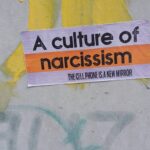Narcissistic abuse is a form of emotional and psychological abuse that occurs in relationships where one person has narcissistic traits or a narcissistic personality disorder. It is characterized by manipulation, control, and a lack of empathy towards the victim. The effects of narcissistic abuse can be devastating, leaving victims feeling confused, isolated, and emotionally drained. In this article, we will explore the different aspects of narcissistic abuse, including its definition, types, and effects on victims. We will also discuss strategies for recognizing and setting boundaries with narcissistic abusers, building a support system, seeking professional help, and developing self-awareness and self-esteem to combat narcissistic abuse.
Understanding Narcissistic Abuse and its Effects on Victims
Narcissistic abuse is a pattern of behavior that involves the manipulation and exploitation of others for personal gain. It can take many forms, including emotional, verbal, psychological, and even physical abuse. The abuser may use tactics such as gaslighting, belittling, blaming, and controlling to maintain power and control over their victim.
The effects of narcissistic abuse on victims can be profound and long-lasting. Victims often experience a range of emotions, including fear, anxiety, depression, and low self-esteem. They may also develop symptoms of post-traumatic stress disorder (PTSD) as a result of the ongoing trauma they have experienced. Additionally, victims may struggle with trust issues and have difficulty forming healthy relationships in the future.
Recognizing the Signs of Narcissistic Abuse in Relationships
Recognizing the signs of narcissistic abuse in relationships is crucial for protecting oneself from further harm. Some common behaviors exhibited by narcissistic abusers include:
– Constant need for attention and admiration
– Lack of empathy towards others
– Manipulative tactics to control and dominate their partner
– Gaslighting – making the victim doubt their own reality
– Belittling and demeaning comments
– Isolating the victim from friends and family
– Blaming the victim for their own abusive behavior
It is important to be aware of these red flags and trust your instincts if something feels off in your relationship. If you suspect that you may be in a narcissistic abusive relationship, it is important to seek support and take steps to protect yourself.
Setting Boundaries to Protect Yourself from Narcissistic Abuse
Setting boundaries is crucial for protecting yourself from narcissistic abuse. Boundaries are limits that you set for yourself and communicate to others about what is acceptable and what is not. They help establish a sense of self-worth and protect your emotional well-being.
When setting boundaries with a narcissistic abuser, it is important to be clear, assertive, and consistent. Clearly communicate your needs and expectations, and be prepared for pushback or attempts to manipulate or invalidate your boundaries. Stay firm in your convictions and remember that you have the right to set boundaries that protect your well-being.
Learning to Say No to Narcissistic Demands and Manipulation
Narcissistic abusers often use manipulation tactics to get what they want. They may guilt-trip, intimidate, or use charm to convince their victims to comply with their demands. Learning to recognize and resist these manipulation tactics is essential for protecting yourself from further harm.
One strategy for saying no to a narcissistic abuser is to practice assertiveness. Assertiveness involves expressing your needs and wants in a clear and respectful manner, while also setting boundaries. It is important to stay calm, confident, and firm when saying no, and not allow yourself to be swayed by guilt or manipulation.
Another strategy is to practice self-care and prioritize your own well-being. Taking care of yourself physically, emotionally, and mentally can help build resilience and make it easier to resist manipulation tactics. Surround yourself with supportive people, engage in activities that bring you joy, and practice self-compassion.
Building a Support System to Help You Cope with Narcissistic Abuse
Having a support system is crucial for coping with narcissistic abuse. It provides a safe space to share your experiences, gain validation, and receive emotional support. A support system can consist of friends, family members, support groups, or therapists who understand and empathize with your situation.
It is important to choose supportive people who will listen without judgment and provide encouragement and validation. Avoid sharing your experiences with people who may minimize or dismiss your feelings or blame you for the abuse. Surrounding yourself with understanding and empathetic individuals can help you feel less alone and provide the strength and encouragement needed to heal from narcissistic abuse.
Seeking Professional Help to Heal from Narcissistic Abuse
Seeking professional help is an important step in healing from narcissistic abuse. Therapists who specialize in trauma and abuse can provide valuable support and guidance throughout the healing process. They can help you process your emotions, develop coping strategies, and work through any trauma-related symptoms you may be experiencing.
There are different types of therapy that may be beneficial for healing from narcissistic abuse. Cognitive-behavioral therapy (CBT) can help you identify and challenge negative thought patterns and beliefs about yourself that may have been instilled by the abuser. Eye movement desensitization and reprocessing (EMDR) therapy can be effective in treating trauma-related symptoms such as flashbacks and nightmares. Additionally, group therapy or support groups can provide a sense of community and validation as you navigate your healing journey.
Developing Self-Awareness and Self-Esteem to Combat Narcissistic Abuse
Developing self-awareness and self-esteem is crucial for combatting narcissistic abuse. Victims of narcissistic abuse often internalize the negative messages they receive from their abusers, leading to low self-esteem and a distorted self-image. Building self-awareness involves recognizing and challenging these negative beliefs and replacing them with more positive and realistic ones.
One strategy for developing self-awareness is to practice self-reflection. Take time to reflect on your thoughts, feelings, and behaviors, and identify any negative patterns or beliefs that may be holding you back. Journaling can be a helpful tool for this process, as it allows you to explore your thoughts and emotions in a safe and private space.
Building self-esteem involves recognizing your worth and value as an individual. Focus on your strengths, accomplishments, and positive qualities. Surround yourself with positive influences and engage in activities that make you feel good about yourself. Practice self-compassion and remind yourself that you deserve love, respect, and happiness.
Avoiding Triggers and Reducing Your Vulnerability to Narcissistic Abuse
Avoiding triggers and reducing your vulnerability to narcissistic abuse is an important aspect of healing and protecting yourself from further harm. Triggers are situations, people, or things that remind you of the abuse and can cause emotional distress or retraumatization.
Identifying triggers involves paying attention to your emotional reactions in different situations. Notice when you feel anxious, fearful, or upset, and try to identify the underlying trigger. Once you have identified your triggers, take steps to avoid or minimize exposure to them. This may involve setting boundaries with certain people or avoiding certain situations that are likely to trigger negative emotions.
Reducing vulnerability to narcissistic abuse involves building resilience and developing healthy coping strategies. Engage in activities that promote self-care and well-being, such as exercise, meditation, or hobbies that bring you joy. Surround yourself with supportive people who uplift and validate you. Practice assertiveness and set boundaries to protect yourself from further harm.
Identifying and Challenging False Beliefs About Yourself and the Abuser
Victims of narcissistic abuse often hold false beliefs about themselves and the abuser. These beliefs may include feeling responsible for the abuse, believing that they deserve the abuse, or feeling unworthy of love and respect. Identifying and challenging these false beliefs is crucial for healing and rebuilding self-esteem.
One strategy for identifying false beliefs is to question their validity. Ask yourself if there is any evidence to support these beliefs or if they are based on the manipulation and gaslighting of the abuser. Challenge these beliefs by replacing them with more positive and realistic ones. Surround yourself with supportive people who can provide a different perspective and help you see your worth and value.
Creating a Safe Exit Plan from a Narcissistic Relationship
Creating a safe exit plan is crucial for leaving a narcissistic relationship. Leaving an abusive relationship can be dangerous, as the abuser may escalate their behavior in an attempt to maintain control. It is important to prioritize your safety and take steps to protect yourself during the process.
When creating an exit plan, consider the following steps:
1. Reach out for support: Inform trusted friends, family members, or professionals about your situation and seek their support.
2. Gather important documents: Collect important documents such as identification, financial records, and legal documents in a safe place.
3. Secure your finances: Open a separate bank account and start saving money to ensure you have financial independence.
4. Develop a safety plan: Identify safe places you can go if you need to leave quickly, such as a friend’s house or a shelter. Memorize emergency contact numbers.
5. Restraining order: If necessary, consult with a lawyer about obtaining a restraining order to protect yourself from further harm.
Remember, leaving an abusive relationship can be challenging, but it is possible with the right support and resources. Reach out for help and prioritize your safety above all else.
Staying Committed to Your Healing and Recovery from Narcissistic Abuse
Staying committed to your healing and recovery from narcissistic abuse is crucial for long-term well-being. Healing from narcissistic abuse is a process that takes time and effort, and it is important to stay committed to your journey.
One strategy for staying committed is to prioritize self-care. Take time each day to engage in activities that bring you joy and promote your well-being. Practice self-compassion and remind yourself that healing takes time. Surround yourself with supportive people who understand and validate your experiences.
Another strategy is to set goals for your healing journey. These goals can be small, achievable steps that help you move forward. Celebrate your progress along the way and acknowledge the strength and resilience it takes to heal from narcissistic abuse.
Narcissistic abuse is a devastating form of emotional and psychological abuse that can have long-lasting effects on victims. It is important for victims to recognize the signs of narcissistic abuse, set boundaries, and seek support to protect themselves from further harm. Building a support system, seeking professional help, developing self-awareness and self-esteem, and creating a safe exit plan are all important steps in healing from narcissistic abuse. By staying committed to their healing and recovery, victims can regain their sense of self-worth and rebuild their lives after narcissistic abuse.


